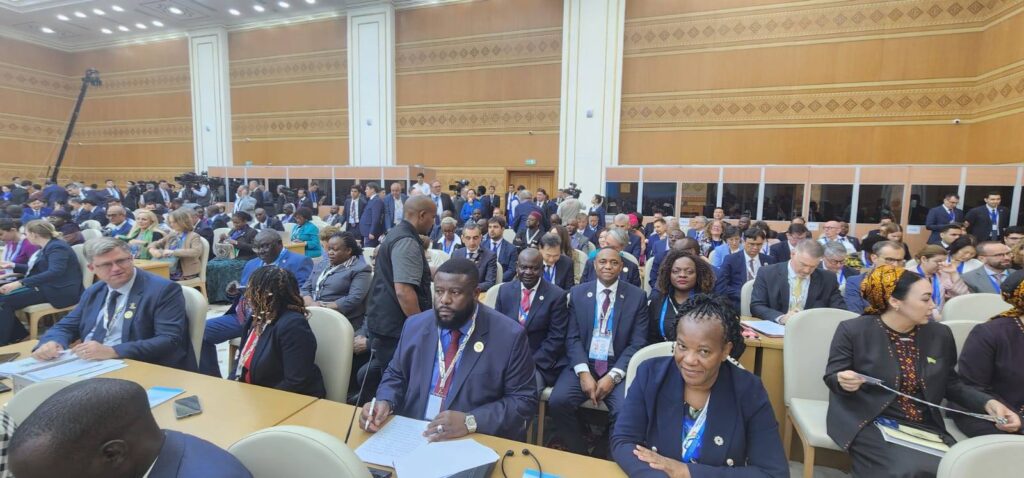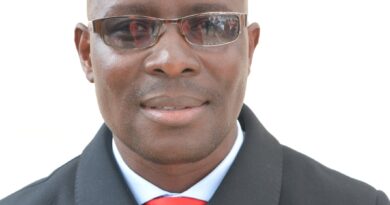Zambia Reaffirms Commitment to Landlocked Countries’ Agenda at UN LLDC3 Conference
Zambia has reaffirmed its dedication to advancing the interests of landlocked developing countries (LLDCs) during the ongoing Third United Nations Conference on Landlocked Developing Countries (LLDC3) being held in Awaza, Turkmenistan, from August 4 to 8, 2025.
Speaking at a high-level dialogue on “Building Sustainable Infrastructure, Strengthening Connectivity and Promoting Unfettered Transit Systems,” Zambia’s Minister of Transport and Logistics, Hon. Frank Museba Tayali, emphasized the country’s commitment to the collective goals of the UN LLDC Group.
He called for enhanced collaboration among stakeholders to overcome shared challenges, saying, “We appeal to all stakeholders to hold hands in this journey so that together we can attain development, mobilize resources, and move seamlessly across borders.”
Hon. Tayali acknowledged the progress made under the Almaty and Vienna Programmes of Action, with gratitude extended to the United Nations and development partners for their continued support.
However, he also noted that Zambia did not achieve all the agreed-upon goals. Looking ahead, he expressed optimism about the newly adopted Awaza Programme of Action, stating that its five priority areas are well articulated and will be streamlined into Zambia’s National Development Plans.
The Minister stressed that Zambia embraces its landlocked status not as a setback, but as a strategic opportunity to transform into a land-linked regional hub. He said the country is focused on building resilience and becoming better integrated into the global economic system.
Hon. Tayali praised Zambia’s coastal neighbours—Angola, Mozambique, Namibia, Tanzania, and South Africa—for their support in providing land for dry ports and logistics hubs. He highlighted these initiatives as outstanding examples of regional partnership, enabling Zambia’s improved access to global markets.
Zambia’s broader development strategy, he noted, is centred on turning its geographical disadvantage into a strength through infrastructure development, regional cooperation, and open transit systems. He outlined major transport corridors that Zambia is actively developing to improve regional and global trade connectivity.
These include the North-South Corridor, the Dar es Salaam Corridor, the Lobito Corridor (a trilateral initiative with Angola and the DRC), the Walvis Bay-Ndola-Lubumbashi Development Corridor (WBNLDC), and the Beira and Nacala Corridors through Mozambique.
These corridors are designed as multi-modal platforms to boost economic growth, facilitate trade, and attract investment. Hon. Tayali said they are essential to Zambia’s goal of leveraging its location as a transit and logistics powerhouse in Southern Africa.
The LLDC3 conference brings together 32 landlocked developing countries to reflect on development challenges and opportunities, and to align efforts through the Awaza Programme of Action, which places infrastructure, transit efficiency, and international cooperation at the centre of its strategic vision.



